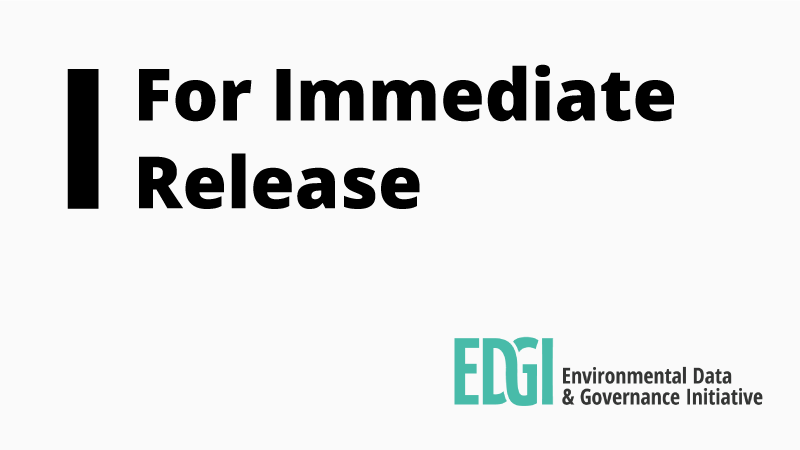FOR IMMEDIATE RELEASE
November 12, 2025
CONTACT: Report authors are available to answer media questions. To arrange an interview, please direct media inquiries to shannanlenke.stoll@envirodatagov.org.
Trump Excuses Some of the Nation’s Riskiest Emitters From Clean Air Act Rules
November 12, 2025 – Under President Trump and EPA Administrator Lee Zeldin some of the nation’s largest and riskiest polluters have been made eligible for exemption from key Clean Air Act rules, a new report by the Environmental Data & Governance Initiative (EDGI) shows. The EPA invited applications for exemptions earlier this year, effectively allowing eligible industries to avoid air pollution regulations for mercury and other toxicants by emailing President Trump.
According to EPA data analyzed by EDGI, facilities eligible for these exemptions pose a greater risk to public health than facilities not eligible. Eligible facilities are not marginal polluters. Rather, they release more harmful pollutants and have a higher rate of non-compliance to air pollution laws than other facilities. They also disproportionately impact low-income and communities of color. Meanwhile, the presidential exemption process bypasses administrative procedures intended to ensure scientific review, public feedback, and congressional approval for all EPA actions.
“Trump’s EPA is enabling some of the riskiest polluters in the country to avoid regulations limiting their emissions of mercury, ethylene oxide, and other hazardous pollutants. At the same time, vulnerable communities are forced to continue breathing toxic air,” says lead author Kimberly Barrett. “Rather than an EPA that works for the public, the EPA under President Trump and Administrator Zeldin is being reshaped to work for powerful and wealthy industries, who are increasingly being given a free pass to pollute.”
###
The Environmental Data & Governance Initiative (EDGI) analyzes federal environmental data, websites, institutions, and policy. We seek to improve environmental data stewardship and to promote environmental health and environmental justice.

